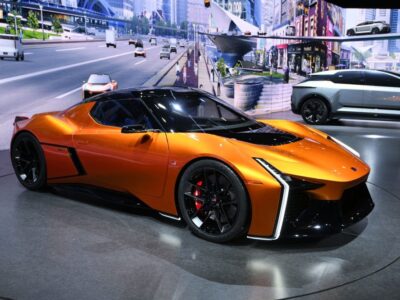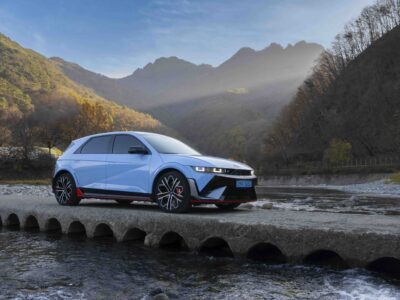A recently-released report shows electric vehicles (EVs) are charging up a significant economic impact, creating at least 143,000 new jobs in the past eight years. The recently-passed federal Inflation Reduction Act (IRA) and the Bipartisan Infrastructure Law have encouraged significant additional investments in EV manufacturing and charging infrastructure across the U.S. In fact, of the EV jobs announced since 2015, 32% have come in the past six months, since the IRA.
The Bipartisan Infrastructure Law is investing in the fabric of America’s transportation system, rebuilding roads, bridges and rail, and at the same time, contributing to climate resilience, new employment opportunities, and public safety. This investment is particularly impactful in the EV industry, where 66% of new jobs announced since the law was passed are in that industry.
Similarly, the IRA has already generated over 100,000 clean energy industry jobs, with 90 projects and over $89.5 billion in investment.

“In little more than a year, the historic investments in the Inflation Reduction Act and Bipartisan Infrastructure Law have helped launch an American vehicle manufacturing renaissance,” said Peter Zalzal, the EDF’s associate vice president for clean air strategies. “This report captures the race to the top in states across the country — from Michigan to Georgia to Nevada — to secure the significant investments and jobs linked to manufacturing electric vehicles.”
The report also shows that EV manufacturers have announced more than $120 billion in investments since 2015. And between 2015 and today, 55,800 jobs were created for electric passenger cars alone.
Almost 90% of that investment is focused on eight states: Georgia, Michigan, South Carolina, North Carolina, Tennessee, Kansas, Nevada, Ohio, and Indiana. EV investments in those states are expected to add at least 10,000 new jobs in each area. Alabama, California, Illinois, Arizona, and Texas are next in line for new electric car facilities.

The growth is expected to continue to skyrocket, as two dozen EV companies have announced expansion plans in the U.S., including BMW, Tesla, Toyota, and Hyundai. Ford Motor Company’s new Michigan battery facility and Tesla’s Sparks, NV, factory complex will add as many as 5,500 new jobs this year.
“We are committed to leading the electric vehicle revolution in America, and that means investing in the technology and jobs that will keep us on the cutting edge of this global transformation in our industry,” said Bill Ford, Ford Motor Company’s executive chairman.
The future is certainly bright for electric cars, with a predicted capacity of more than 4 million new passenger vehicles built in the U.S. each year beginning in 2026.

“Going forward, EPA has a vital opportunity to establish national pollution standards for light, medium, and heavy-duty vehicles that reflect and build from these substantial investments — standards that will reduce climate and health-harming pollution, save consumers money, and support high-quality jobs,” Zalzal added.
It’s clear that recent federal investments and bipartisan legislation have accelerated and expanded the EV industry from coast to coast. Whether it’s the cars themselves or the batteries that power them, new facilities are creating more jobs, invigorating local communities, and revitalizing the American automobile industry in a way that paves the road to a cleaner, sustainable transportation future.





